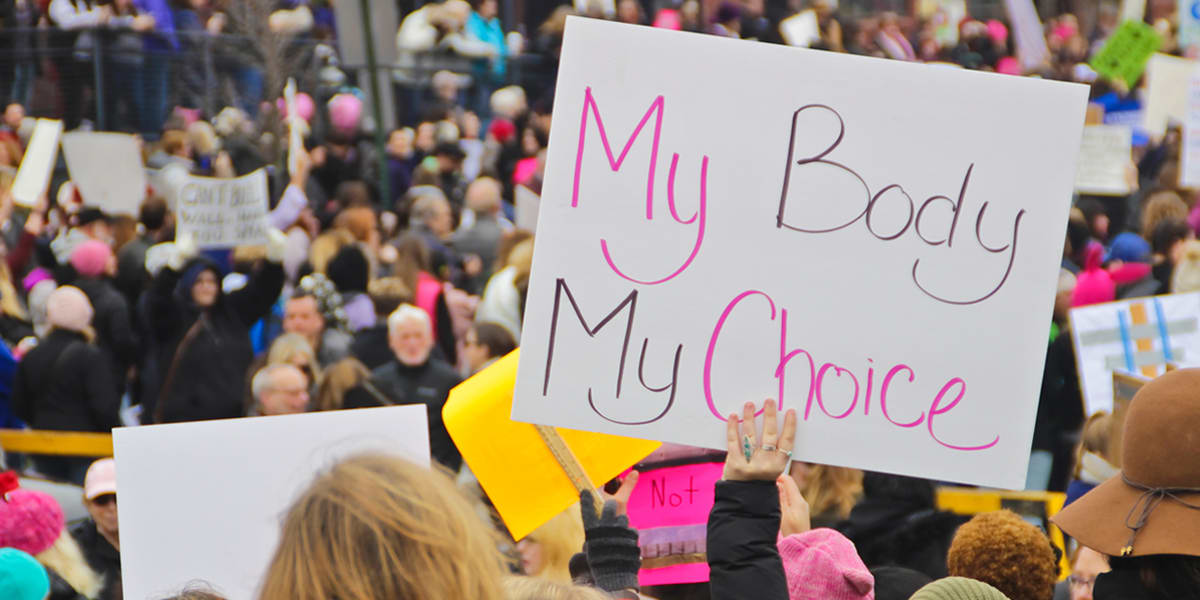This is what abortion laws look like around the world today

With Alabama’s shocking abortion ban still shaking the country, it’s an important moment to take stock and recognize the plight of all of the women who do not have comprehensive access to abortion — here at home and around the world. While the US has a myriad of different abortion laws that vary state by state, the situation around the world is similarly mixed. It’s easy to assume that all women, or at least most women, have access to this fundamental piece of healthcare, but the truth is only about a quarter of countries provide unqualified access to abortion. The Center For Reproductive Rights has created an interactive map of abortion laws around the world, which are really worth taking a look at to help understand how grave the situation is for so many women.
These laws are not just dehumanizing — limiting women’s autonomy and treating them as second class citizens — they are so frustratingly counter-intuitive. Anti-abortion laws do not stop abortions. As Amnesty International points out, “Preventing women and girls from accessing an abortion does not mean they stop needing one. That’s why attempts to ban or restrict abortions do nothing to reduce the number of abortions, it only forces people to seek out unsafe abortions.”
Here’s a sense of what abortion laws look like around the world.
Only about 50 countries allow abortion without justification or permission
According to the World Health Organization, only 49 countries allow a woman to seek an abortion without having to provide justification — like the fact that it would be dangerous to her health to carry out the pregnancy or that it was a case of rape or incest. The United States technically falls under this category but, as we’ve seen in Alabama, this is not the case for all American women. Laws vary hugely from state to state and even in states where abortion is technically legal, there can be so many practical obstacles — cost, lack of providers, lack of resources — that the reality might be that getting an abortion is nearly impossible.
With around 200 countries in the world, it’s shocking that fewer than 50 countries allow a woman to seek an abortion without justification. And, as we’ve seen, even in those countries it is not necessarily accessible, just because the right exists.
Many countries fall into the "highly restrictive" category
While blanket bans on abortion do exist — in countries like Brunei, Guatemala, Syria, the Philippines, El Salvador, Haiti, Malta, and others — many more fall into what is commonly called the “highly restrictive” category. This is when an abortion is legal, but only in very limited circumstances — such as rape, incest, or threat to the life of the mother. A huge number of women are affected by these types of laws. “In fact, according to the WHO, across the globe, 40% of women of childbearing age live in countries with highly restrictive abortion laws, or where abortion is legal, is neither available or accessible,” Amnesty International explains. “In these states, abortion is banned or only permitted in highly restricted circumstances, or if legal, is not accessible due to multiple barriers to access in practice.” That's nearly half of women living in countries where they can't feasibly access abortion, except in the most extreme of circumstances.
Restrictions and exceptions vary around the world
Many countries allow abortion in certain circumstances — but these circumstances vary widely country by country. In some places, a woman’s mental state might be taken into consideration, while in other her economic circumstances might be considered. In some places there is no gestational limit, in others, it becomes very difficult to get an abortion after 12 weeks. The World Health Organization has created an incredible interactive map that allows you to look at dozens of different factors and how they play into abortion laws around the world — and it’s an important lesson in how far we have to go toward securing an unqualified right to abortion.
Targeting doctors has a highly discriminatory effect
The Alabama law plans to criminalize doctors who would perform abortions, rather than the women who seek them — but there are some countries that are already targeting the abortion providers. Malta, the Philippines, Nicaragua, El Salvador, and even Northern Ireland are all countries that punish doctors for performing abortions — and in many countries, they can face years of jail time.
That would be shocking enough, but there's a horrific ripple effect. Because of these laws, there are reports of doctors reporting women to the police if they think that they have tried to have an abortion, to ensure that they are not implicated. And criminalizing doctors for performing abortions has a huge knock-on effect. CNN reports that in areas where doctors are penalized for abortions “doctors are frightened to treat a pregnant woman for illnesses such as cancer, malaria, HIV/AIDS or cardiac emergencies where treatment could cause injury or death to the fetus.” So not only are these women denied a right to an abortion, they can be denied other basic medical care.
What's happening in Alabama is an unforgivable denial of autonomy and independence and it's right that, as a society, we are coming together to pillory the disgusting actions — but it's also so important to recognize circumstances around the globe. A right to abortion matters, no matter where we are, and it's a reminder that the fight is far from won.



